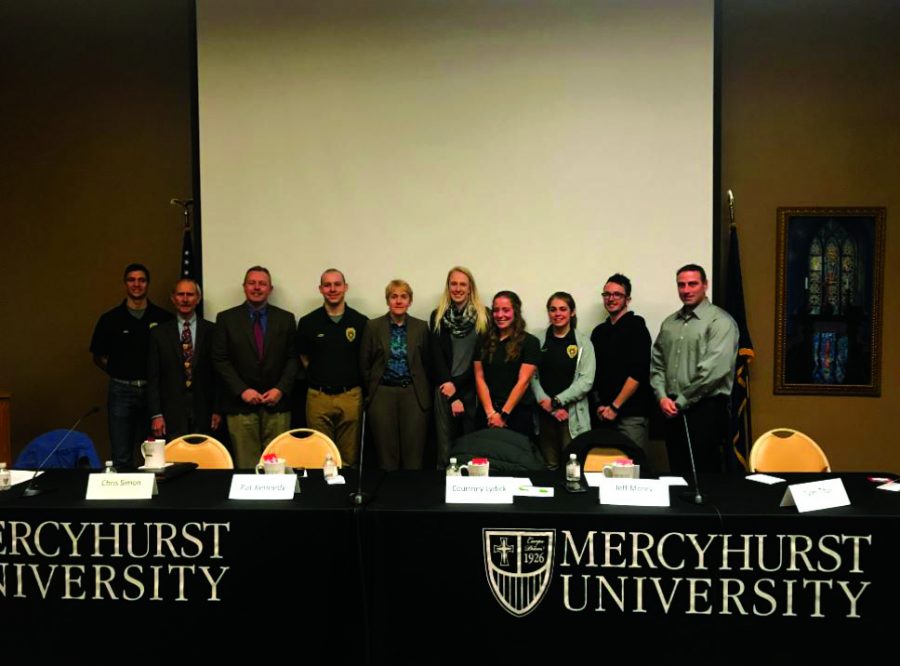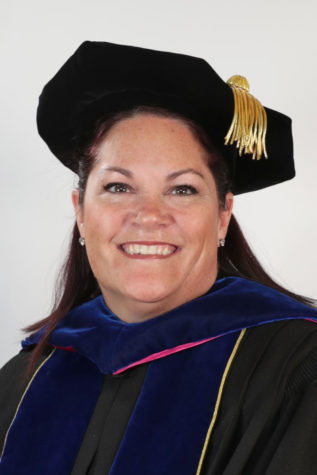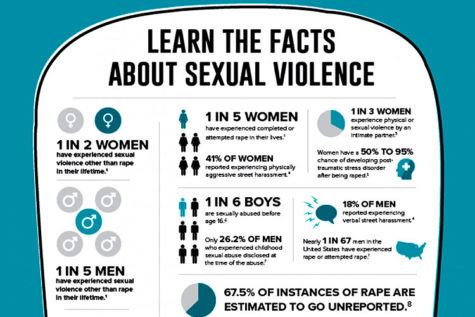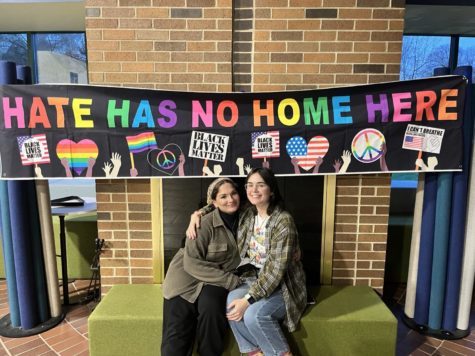Shifting juvenile justice
The Criminal Justice Association presented a panel of speakers to discuss juvenile justice, and the shift toward trauma-informed care.
March 20, 2018
To celebrate National Criminal Justice Month, the Mercyhurst Criminal Justice department has held a variety of different events, including a self-defense class, a trivia night, a lecture on Irish criminal justice and many others. Most of these events have been organized by students.
On March 14, the Criminal Justice Association presented a panel of speakers to discuss juvenile justice.
The panel consisted of a juvenile prosecutor, a clinical therapist, the court administrator in Lake County, Ohio, a juvenile probation officer and a manager of the intake department that investigates cases of child abuse.
Emma Leigh Kirchner, Ph.D., assistant professor of Criminal Justice, commented on the purpose of the panel.
“The goal for the panel was to be both informative about how the juvenile justice system has changed in the past 20 years and showing the students, but also for students to see there are different perspectives and different opportunities within the system,” Kirchner said.
An important point, mentioned in the panel, was the acknowledgment that, although our system historically has been very punishment oriented, we are moving toward trauma-informed care.
Tyler Titus, a panelist and clinical therapist with a history of working with juveniles, discussed this change in the juvenile justice system.
“I think that we are seeing a shift in the juvenile facilities where we are coming at it from more of a trauma approach, the regulations are a lot different than adult facilities, and there are more people involved when dealing with children,” Titus said.
This shift in mindset to look at what happened to a child in their past, instead of only focusing on what they did, follows the trauma-informed care and the department’s goal to teach students to see both juvenile offenders and adult offenders as people instead of just numbers.








